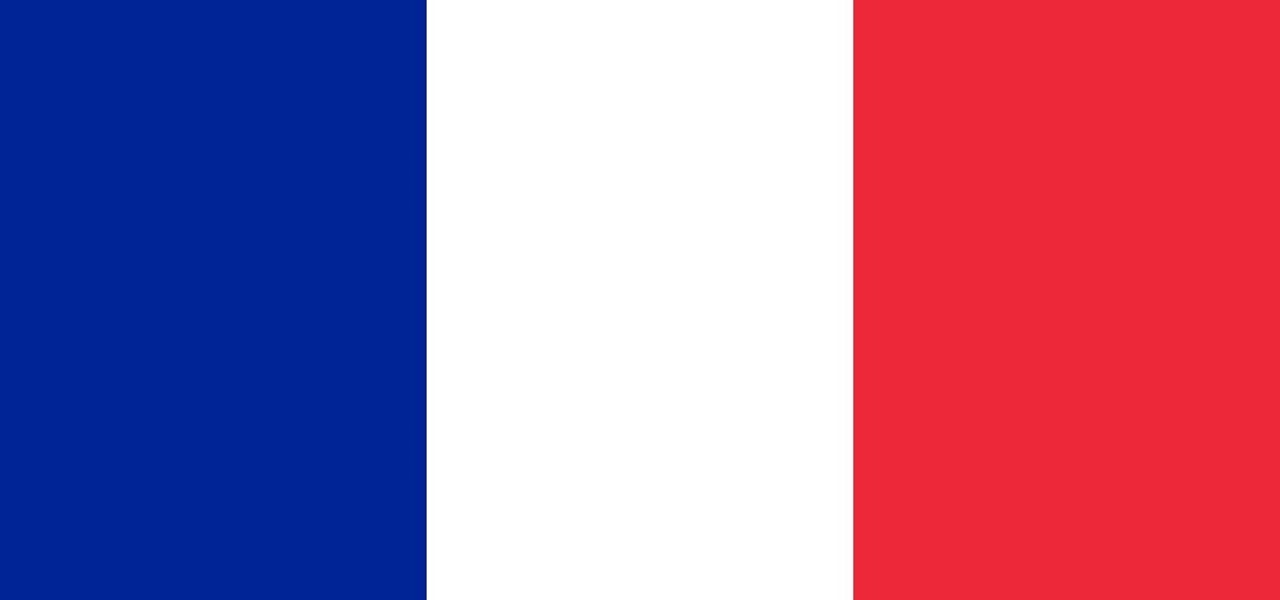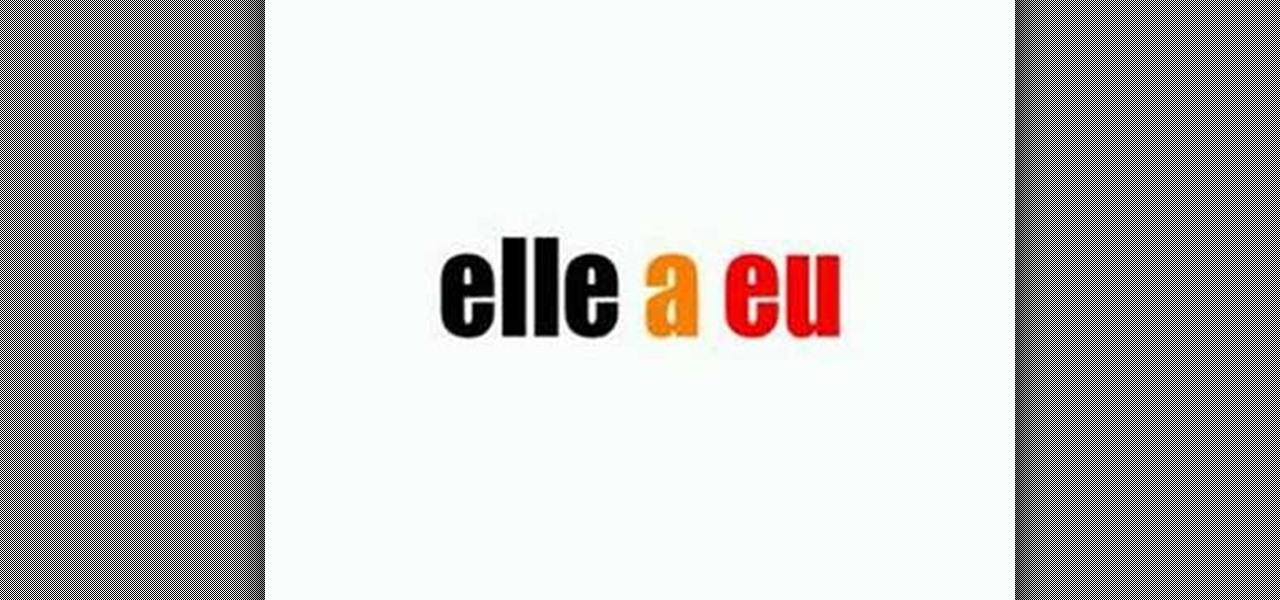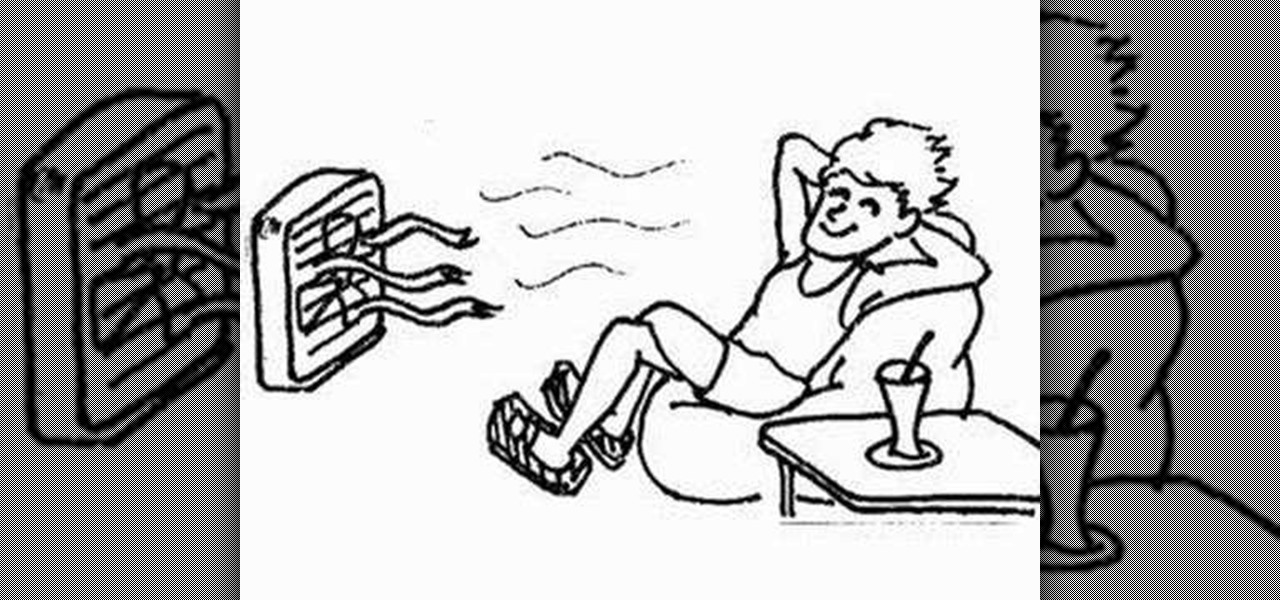Everything Else

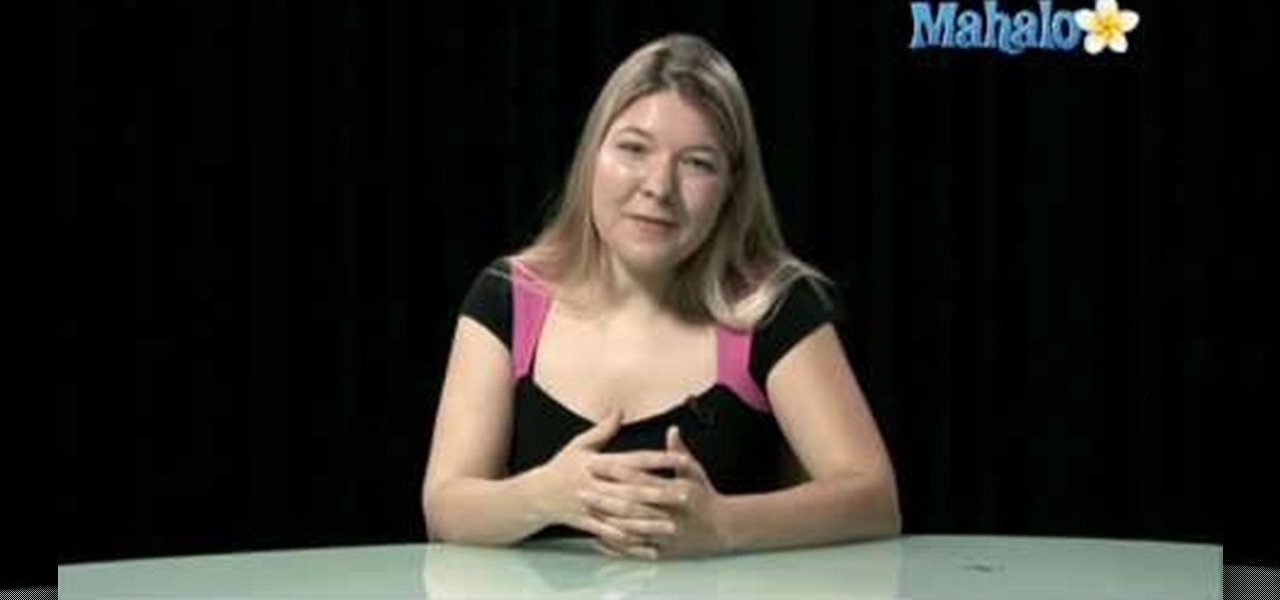
How To: Say "thank you" in French ("merci")
In this free video language lesson, you'll learn how to say the French word for "thank you": "merci." While French isn't necessarily a very difficult language for an English-speaker to learn, many stumble when it comes to pronunciation. Fortunately, the Internet is awash in clips like this one, which make learning both vocabulary and proper pronunciation a very easy task.
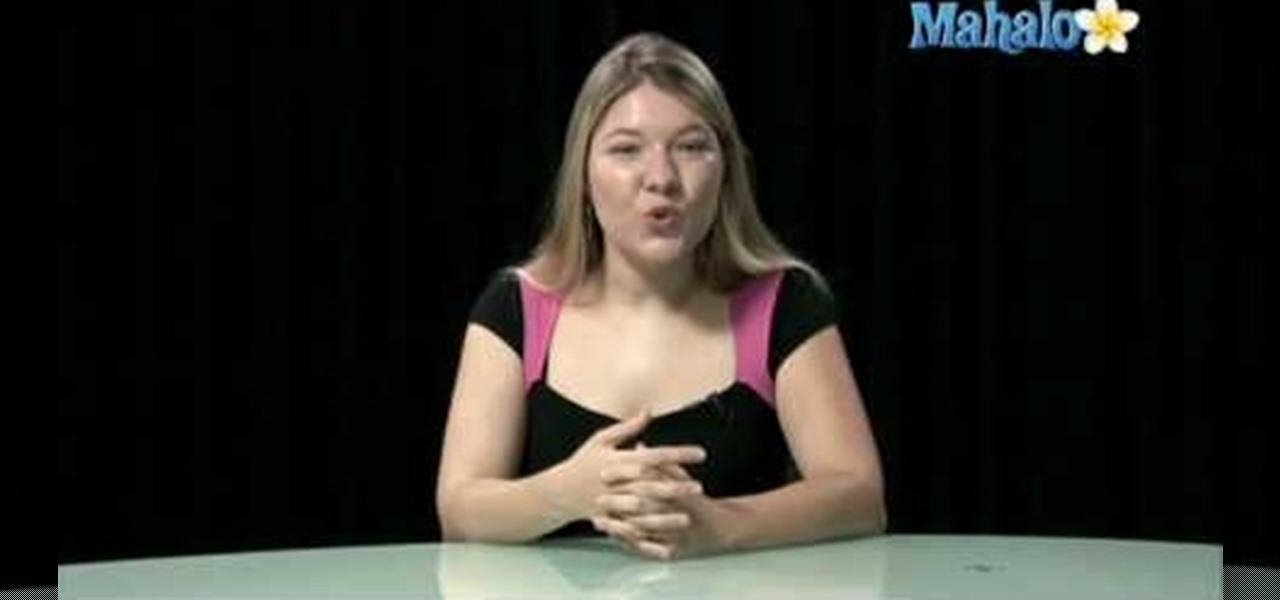
How To: Say "please" in French ("s'il vous plaît")
In this free video language lesson, you'll learn how to say the French words for "please": "s'il vous plaît"—literally "if it pleases you." While French isn't necessarily a very difficult language for an English-speaker to learn, many stumble when it comes to pronunciation. Fortunately, the Internet is awash in clips like this one, which make learning both vocabulary and proper pronunciation a very easy task.
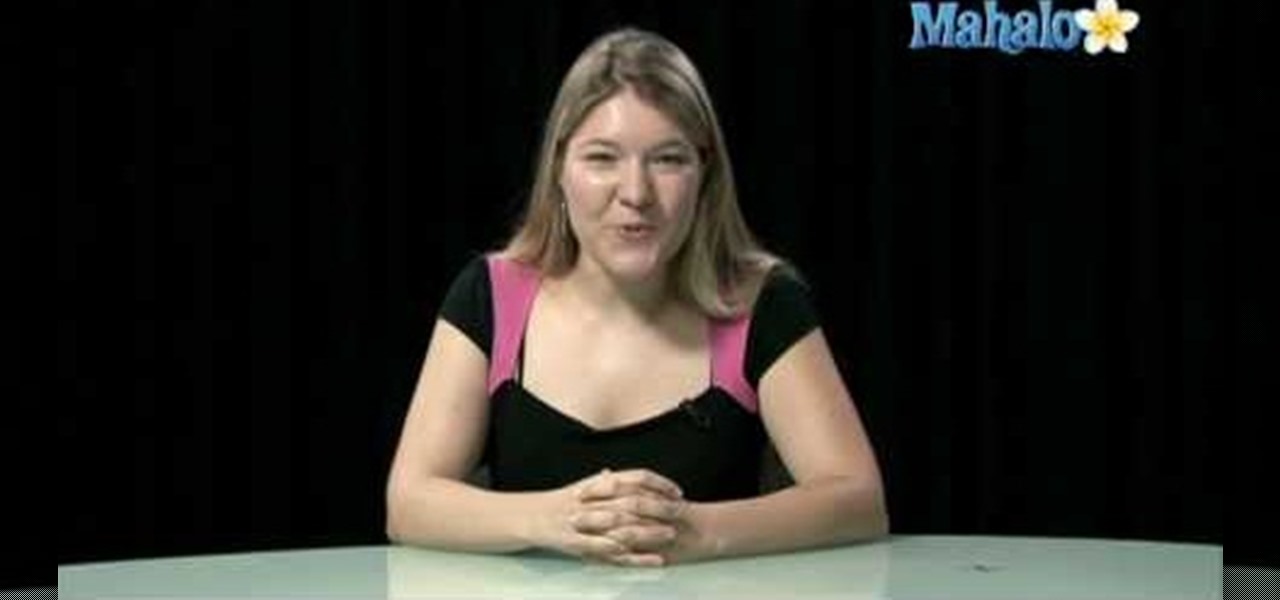
How To: Say "nice to meet you" in French ("enchanté")
In this free video language lesson, you'll learn how to say the French word for "pleased to meet you": "enchanté" or, for women, "enchantée." While French isn't necessarily a very difficult language for an English-speaker to learn, many stumble when it comes to pronunciation. Fortunately, the Internet is awash in clips like this one, which make learning both vocabulary and proper pronunciation a very easy task.
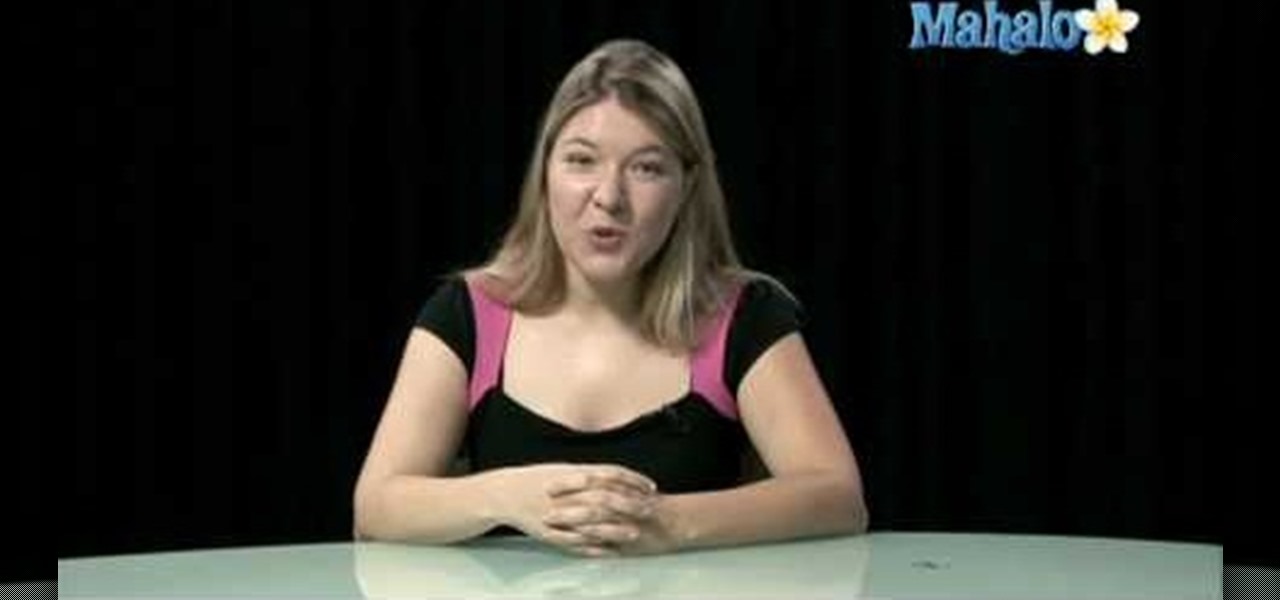
How To: Say "goodbye" in French ("au revoir")
In this free video language lesson, you'll learn how to say the French words for "good bye": "au revoir." While French isn't necessarily a very difficult language for an English-speaker to learn, many stumble when it comes to pronunciation. Fortunately, the Internet is awash in clips like this one, which make learning both vocabulary and proper pronunciation a very easy task.
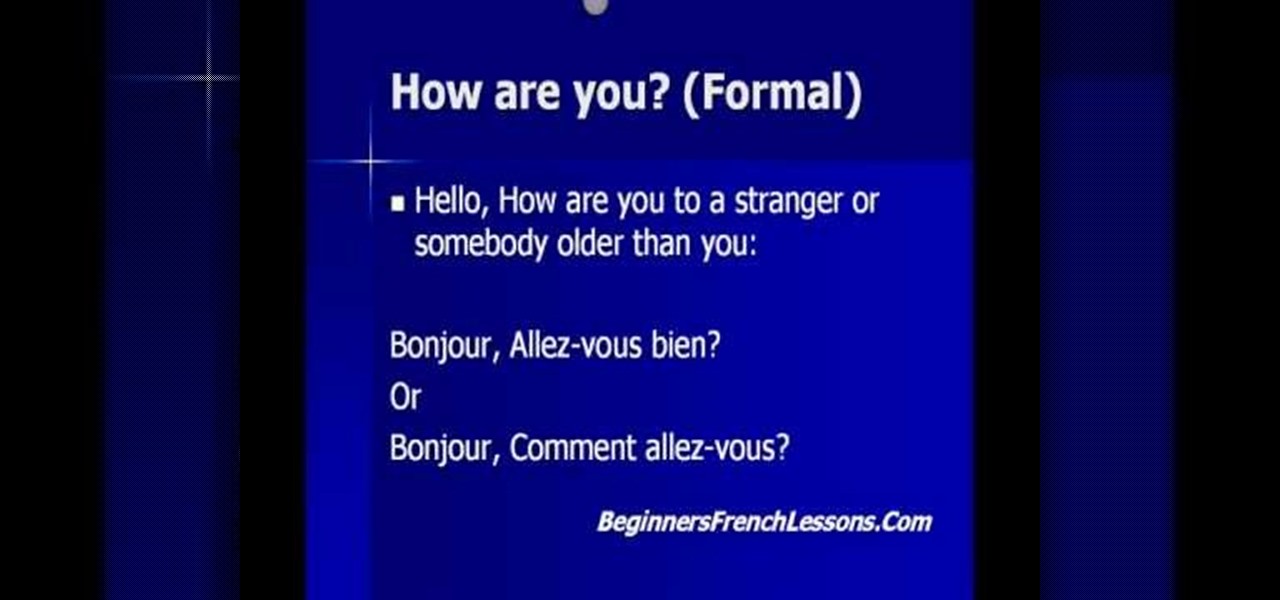
How To: Say 'hello' in French ('bojour' or 'salut')
One of the most basic things you should know in French is a nice greeting. Saying "hello" to someone in French is easy, and is comprised of either "bonjour" or "salut". To say "hello" or "hi" to a friend who is either your age or younger, you say, "salut". To ask "how are you" to someone older than you, you say "bonjour, allez-vous bien" or "bonjour, comment allez-vous?" To a friend, you ask, "Salut, Ca va bin?"
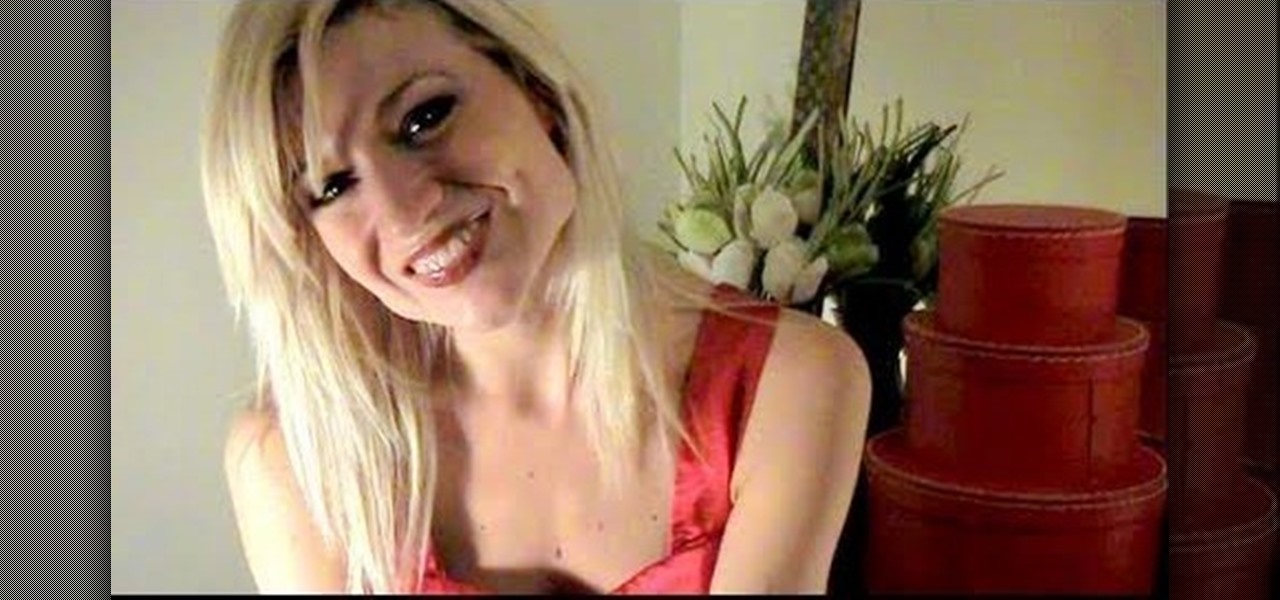
How To: Say I love you in French
In this how to video, you will learn how to say "I Love You" in French. French is known as the language love, so it is very appropriate to learn how to say this properly. First, remember that "I Love You" is written as "Je t'aime" in French. Practice saying the pronunciation until you can easily say it. To answer "I love you too," note that it is written as "Mio aussi." Keep on saying this words until you learn the correct pronunciation. Once you can say both of these consistently and with th...
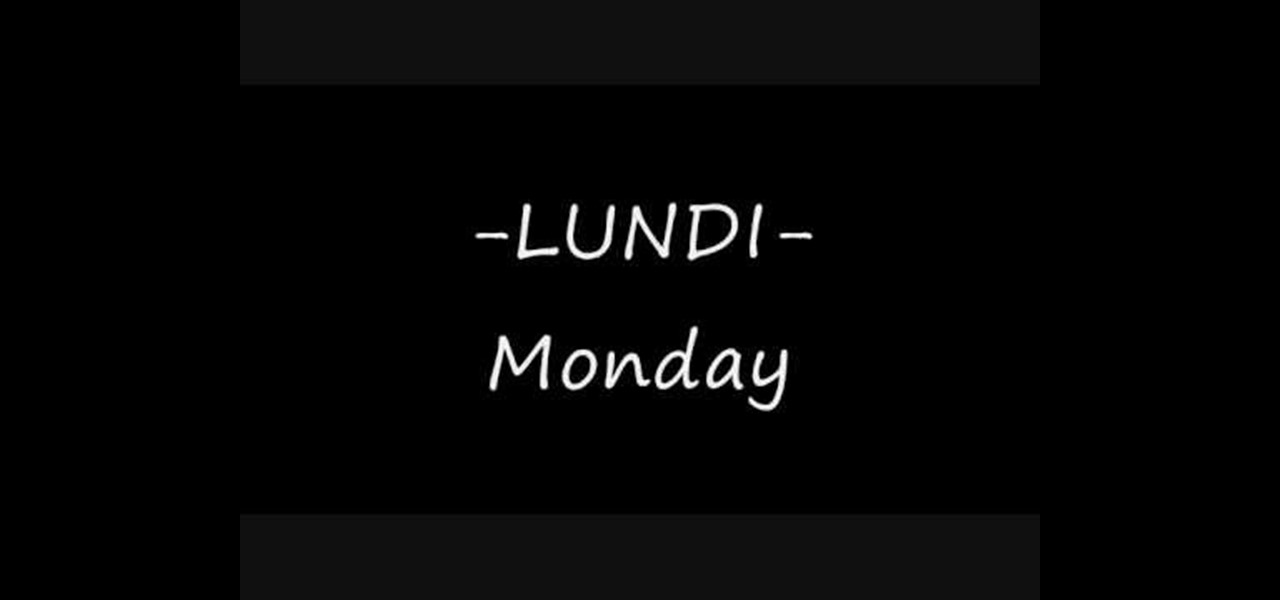
How To: Say the days of the week in French
Learn Languages shows us how to say the days of the week in French, and then ask what day it is. Starting with Monday, the presenter familiarizes us with the French names lundi, mardi, mercredi, jeudi, vendredi, samedi, and dimanche. He also points out that it is important to not capitalize these words. We start slowly, then pick up the pace and say them in sequence more quickly. The presenter follows this up with a short quiz, to make sure we remember the names. We are then presented with a ...
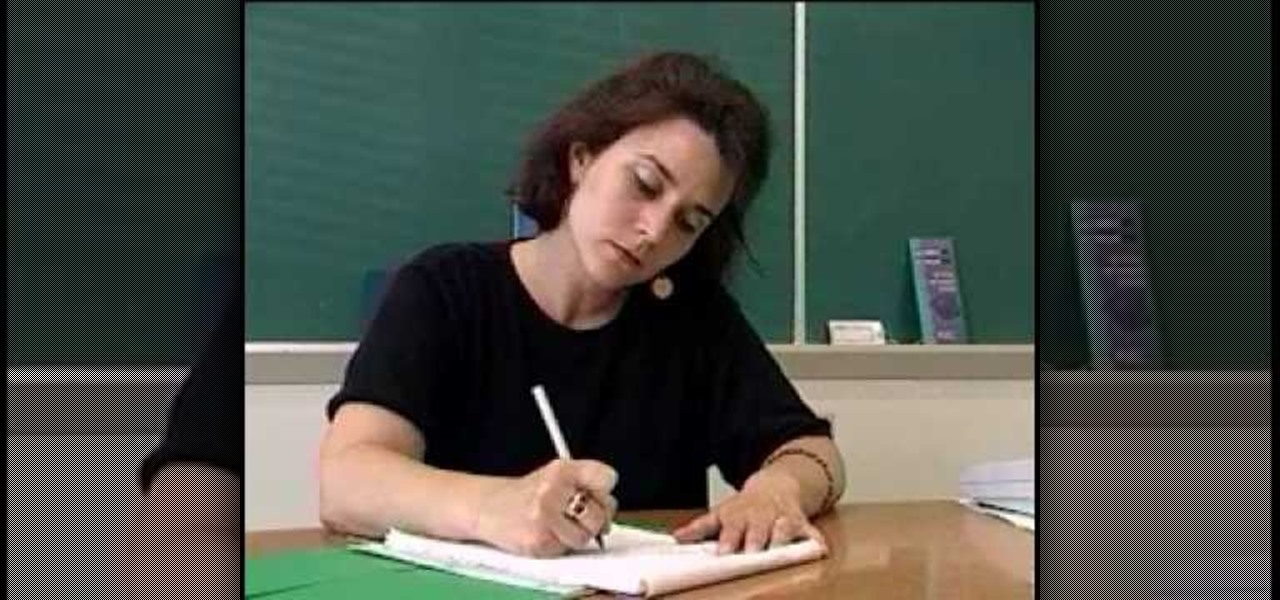
How To: Say 'hello' to someone in French
This video teaches you how to say hello to someone in French. When you approach a female, you should say “Bonjour, Madame”. The first word has two (2) syllables. The first syllable is pronounced the same as the word bone is pronounced in English. The second syllable of the first word is pronounced like the English word Jew: i.e. bone-Jew. The j sound in Jew should be overly exaggerated. To say hello to a male, you should say “Bonjour, Monsieur”. This is a formal way to say hello.
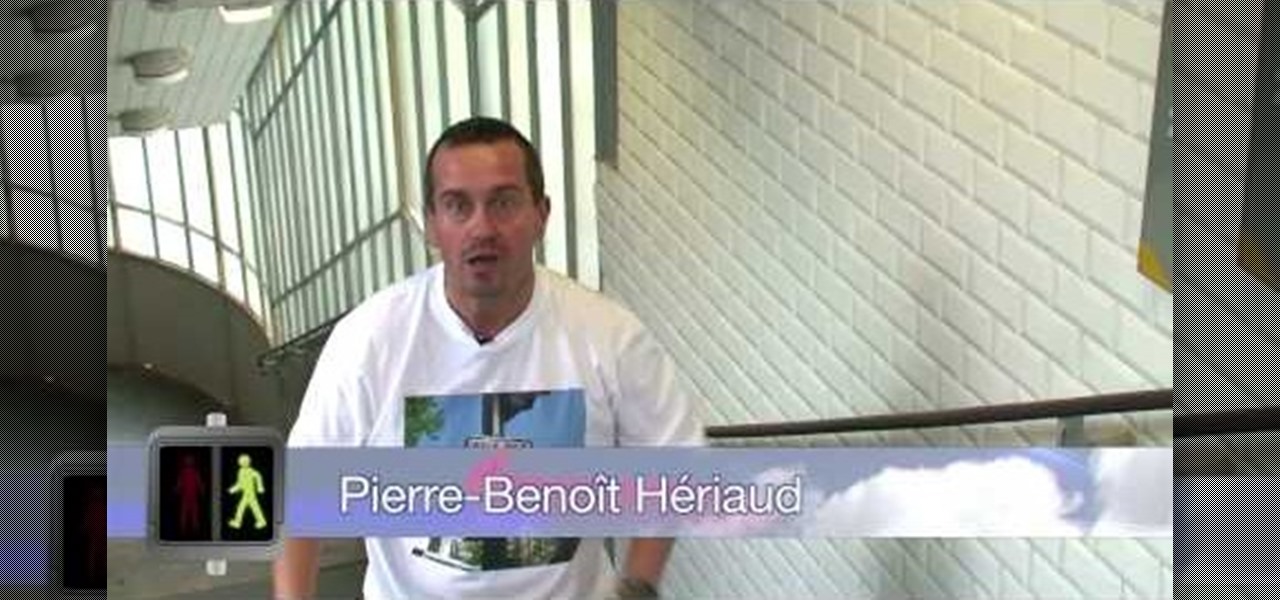
How To: Understand & use expressions "dès que.." & "ne...plus"
This video shows how to use the French expressions "das que..." and "ne...plus". The expression "das que..." means "as soon as".”ne..plus" means "no longer". You can use these expressions in sentences. " Je ne veux plus venir" means “I don’t want to come any longer". "Des que je me leve je prends un cafe" means " After I get up in the morning I have a coffee" These are regular sentences people use every day in the French language just as used in the English language.
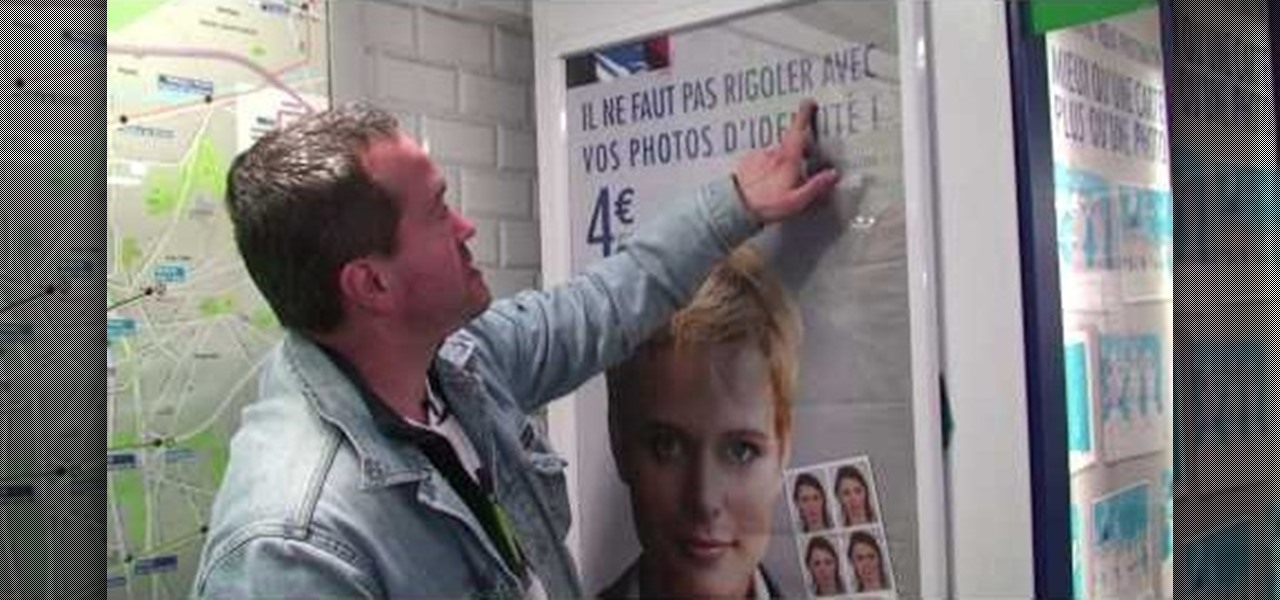
How To: Understand & use the phrase "il faut"
In this video tutorial, viewers learn how to speak French. This video focuses on the phrase "il faut" and the French infinitive. This video is the third episode of a ten episode series. Viewers learn how to form sentences and the meaning of some French words. This video is very detailed and descriptive. It gives a great, easily understood explanation for viewers. This video will benefit those viewers who want to learn the French language or want to become more fluent in speaking French.
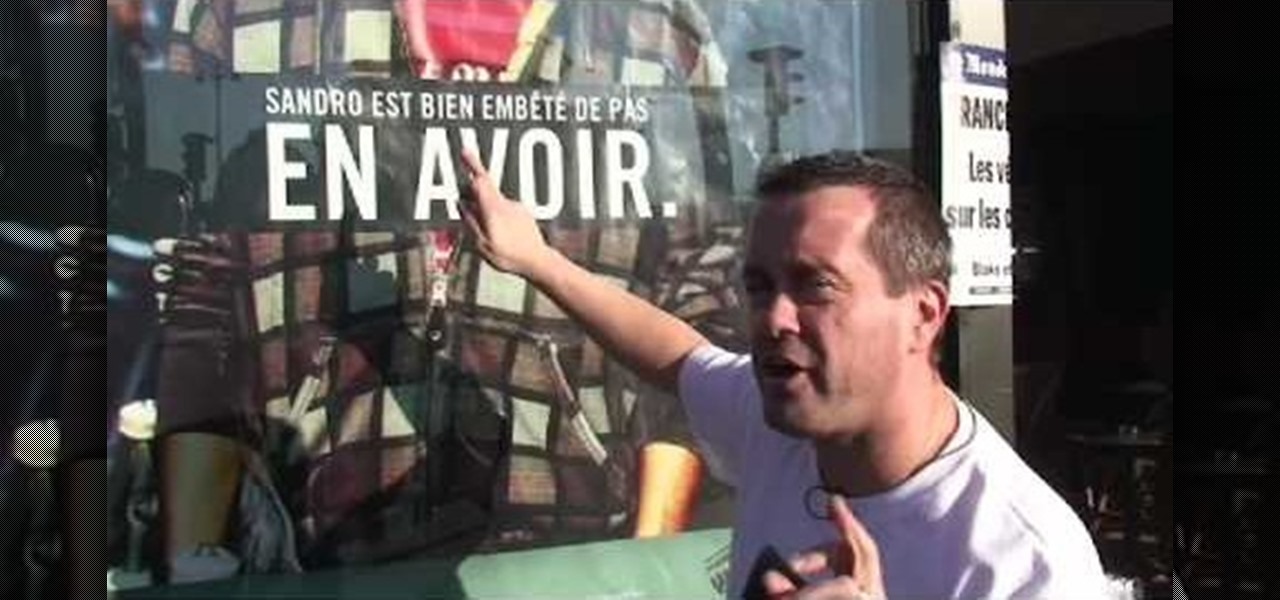
How To: Understand & use adjective agreements & the word bien
Pierre-Benoit Heriaud explains the various meanings of the French word bien. Firstly, there is one obvious meaning the common "good" or "acceptable". However, one can also use it in sentences such as "Il fait bien froid" to present the current status of the weather as being excessive in one way. In this case, it can easily be replaced with the adverb "vraiment", not losing any bit in meaning. Lastly, the word "embete" might also be a trap in that it usually means annoyed, but can be associate...
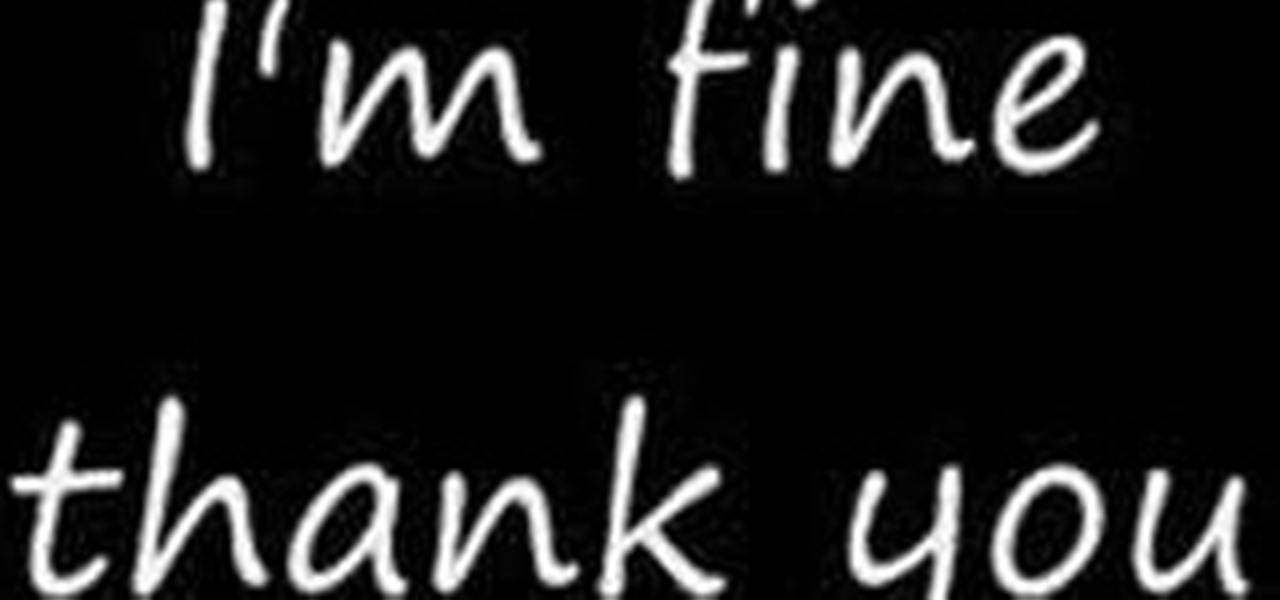
How To: Speak basic meeting and greeting phrases
Do you need to learn some basic French skills? This great vocabulary tutorial from learnlanguages1.googlepages.com will teach you some essential meeting and greeting phrases that will give you a jump start in speaking quickly and proficiently. It includes comprehensive context and pronunciation information that will save you hours of time and probably help you avoid a great deal of embarrassment. With this excellent series of free videos, you can greatly improve your French language skills qu...
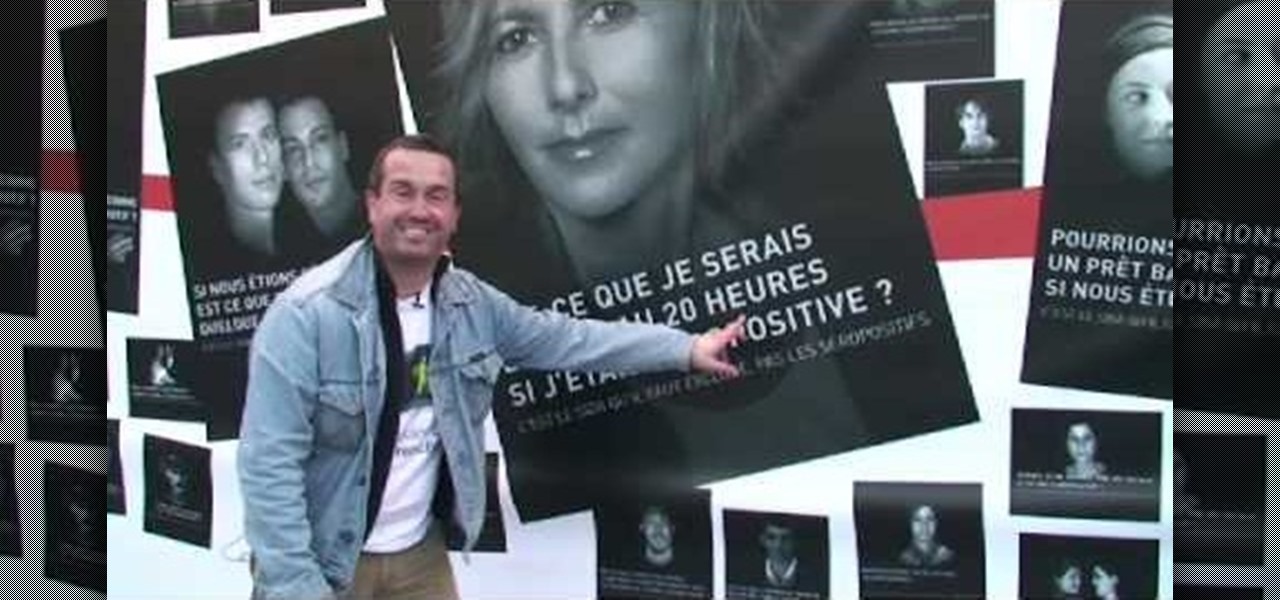
How To: Understand imperfect combined with conditional tense
Learning French on the web is brought to life by walking the streets of France though a YouTube video. Here a French man brings you to a large advertising poster on a Paris Street to show the use of verbs. While the content of the billboard/poster itself grabs your attention, the on the street instructor provides vital information so that you will better understand the imperfect combined with conditional tense. This novel approach of learning French grammar though the use of real life example...
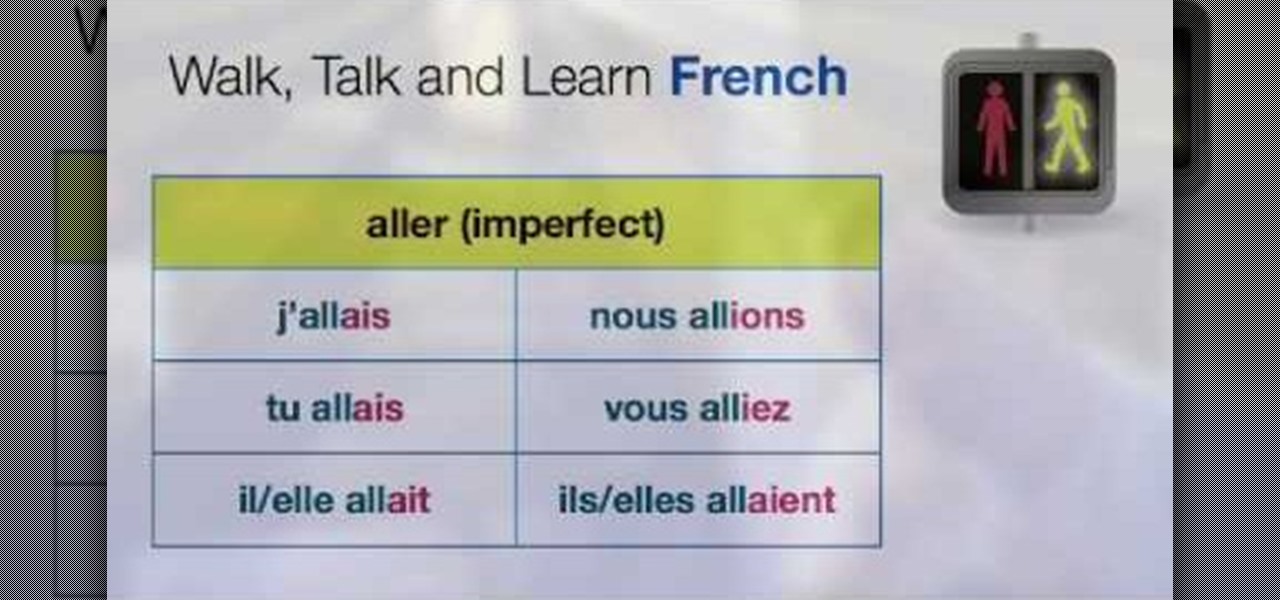
How To: Understand the imperfect tense of verbs in French
This is the eighth episode of "Walk, Talk and Learn French" provided by Radio Lingua Network and it focuses on French verb in the imperfect tense. The video mixes a host providing real life French, while speaking in both French and English, and provides examples with charts and written explanations teaching different verbs. The mix of spoken and written words helps the viewer understand the foreign concepts in a better way.
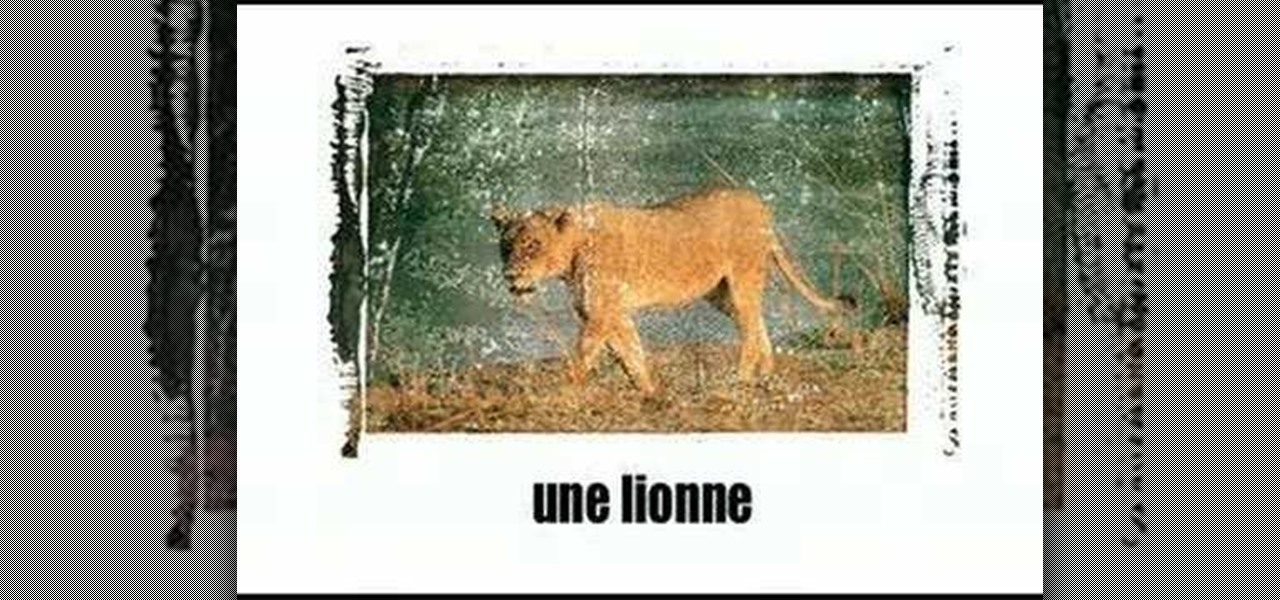
How To: Say the names of animals in French
Learn the names of many different animals in French. Part 1 of 9 - How to Say the names of animals in French.

How To: Describe the jobs of women in the workplace in French
Learn the names of some common jobs women can hold.
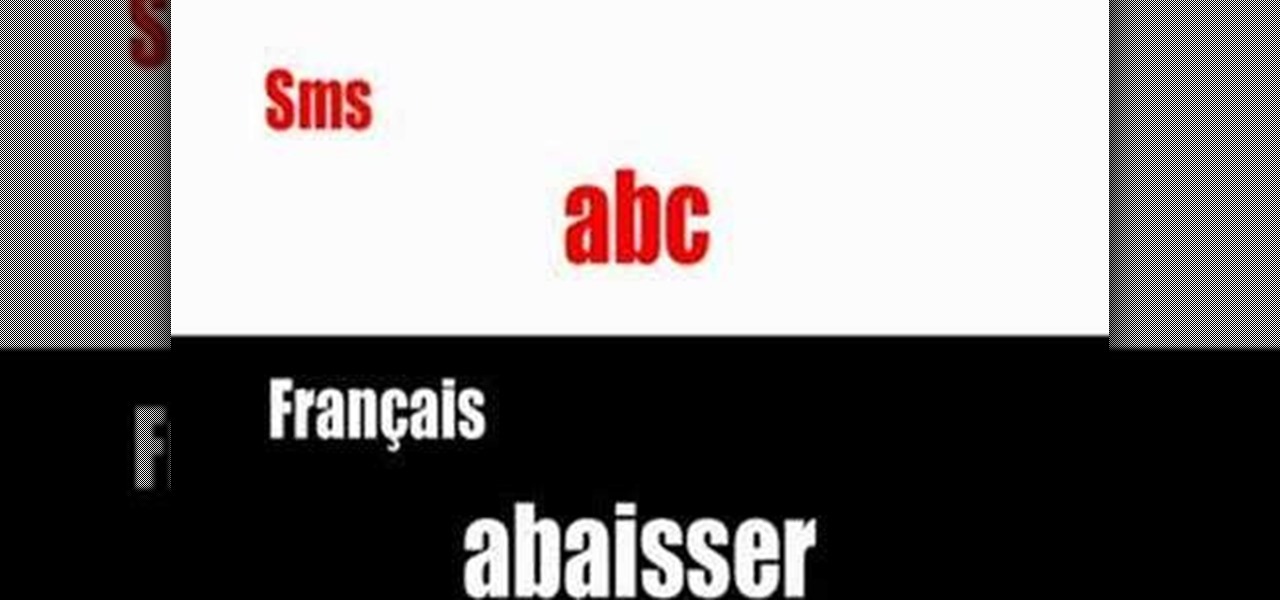
How To: Use French text message abbreviations
Learn some common French abbreviations like "ht" (for "acheter") and "jé" (for "j'ai"). Part 1 of 5 - How to Use French text message abbreviations.

How To: Talk about animals in French
Learn the names of animals in French. Part 1 of 6 - How to Talk about animals in French.

How To: Say "He seems..." in French
Learn how to say someone seems a certain way (angry, sad, happy, etc.) in French.
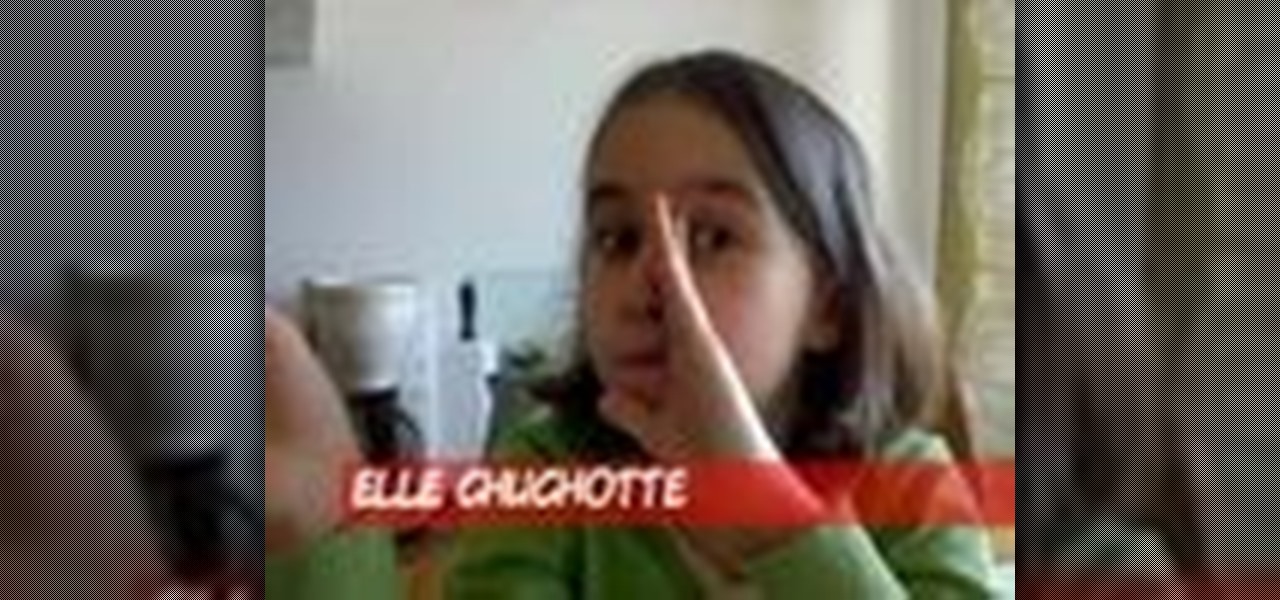
How To: Describe facial expressions in French
Learn how to describe some common facial expressions and actions in French. Part 1 of 2 - How to Describe facial expressions in French.
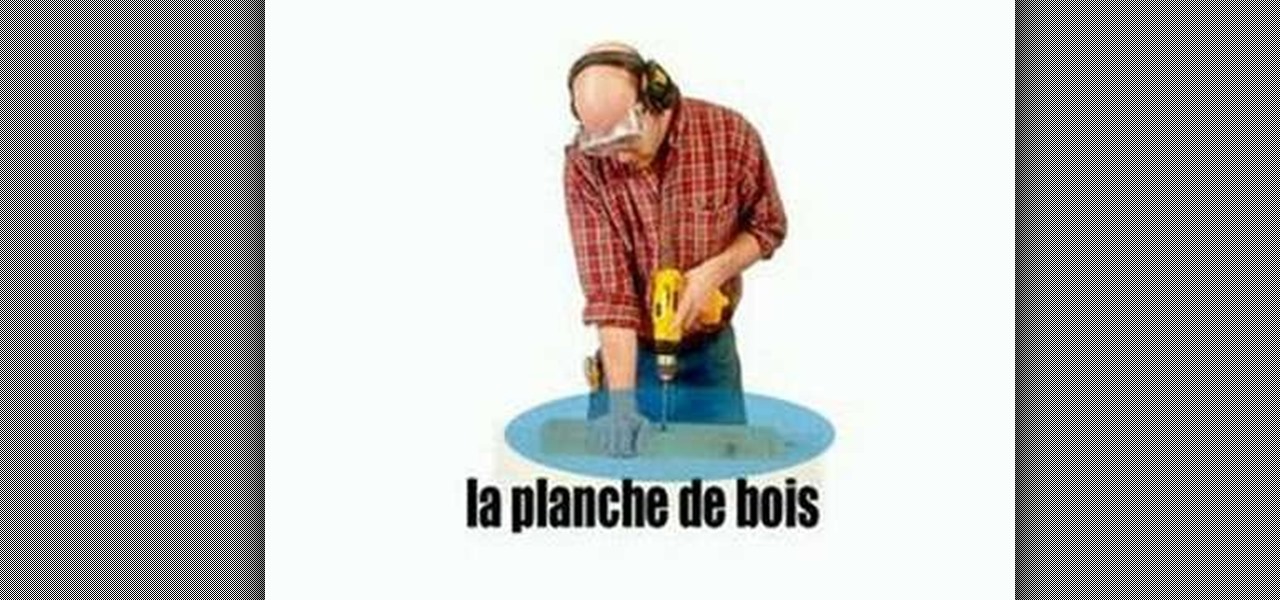
How To: Describe the uniform & equipment of a handyman
Learn the French names for the uniform and equipment of a handyman.

How To: Give directions in French
Learn how to give directions (up, down, left, and right) in French.
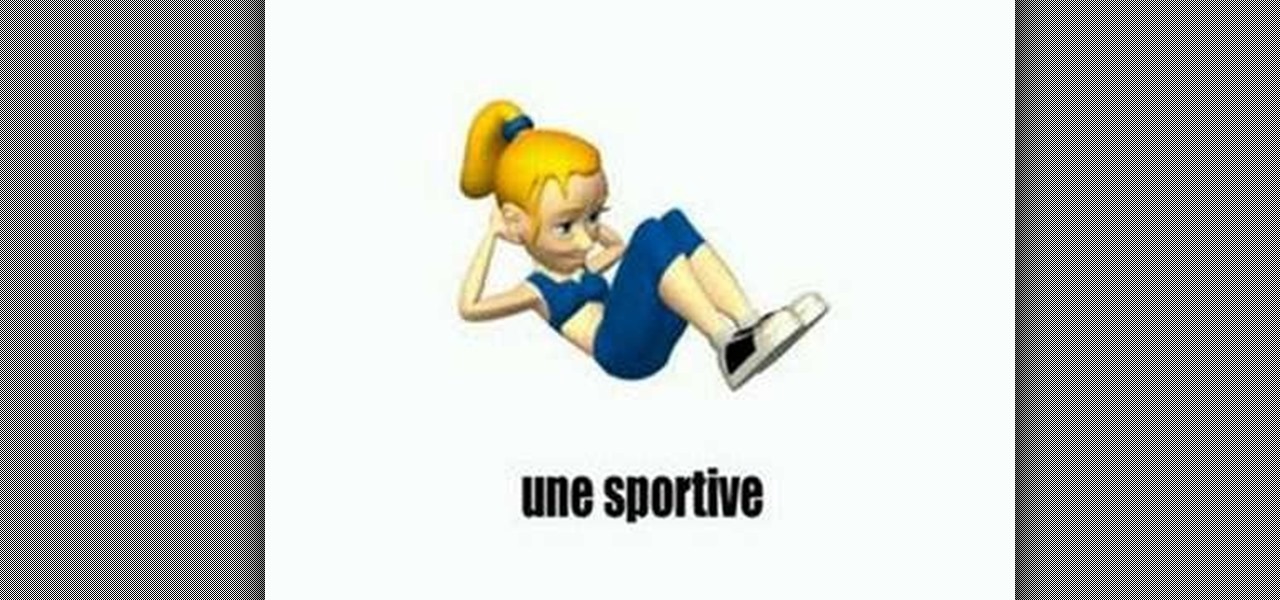
How To: Describe professions in French
Learn the French words for different professions. Part 1 of 20 - How to Describe professions in French.

How To: Describe actions and emotions in French
Watch Bruno le chat and learn to describe what he is doing and feeling in French.
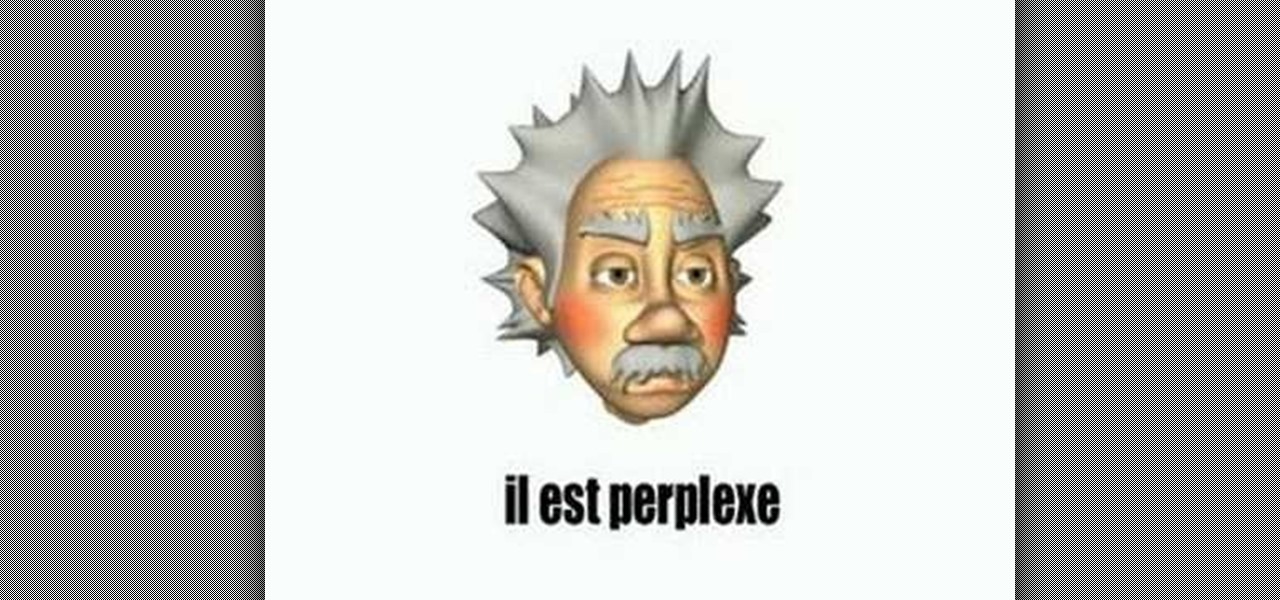
How To: Describe emotions in French
Learn how to describe how you or someone else is feeling in French. Part 1 of 7 - How to Describe emotions in French.

How To: Learn the numbers from 70 to 80 in French
Learn how to say the numbers from 70 to 80 in French.

How To: Learn the numbers from 50 to 60 in French
Learn to say the numbers from 50 to 60 in French.
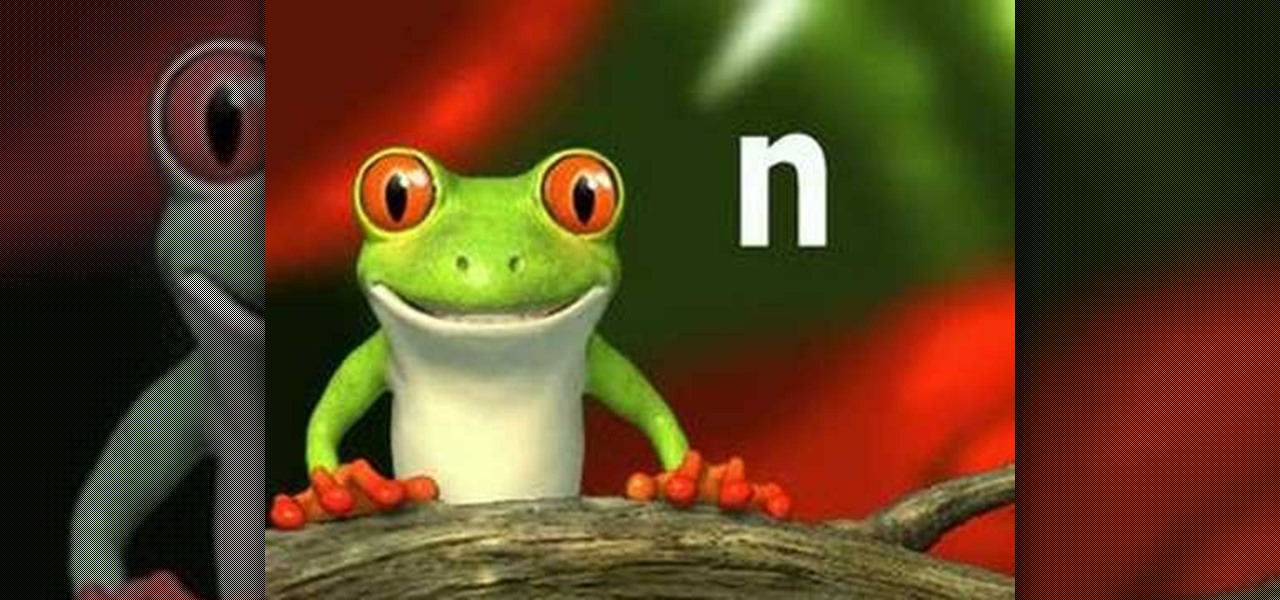
How To: Learn "l'alphabet miniscule" in French
Learn "l'alphabet miniscule" in French.
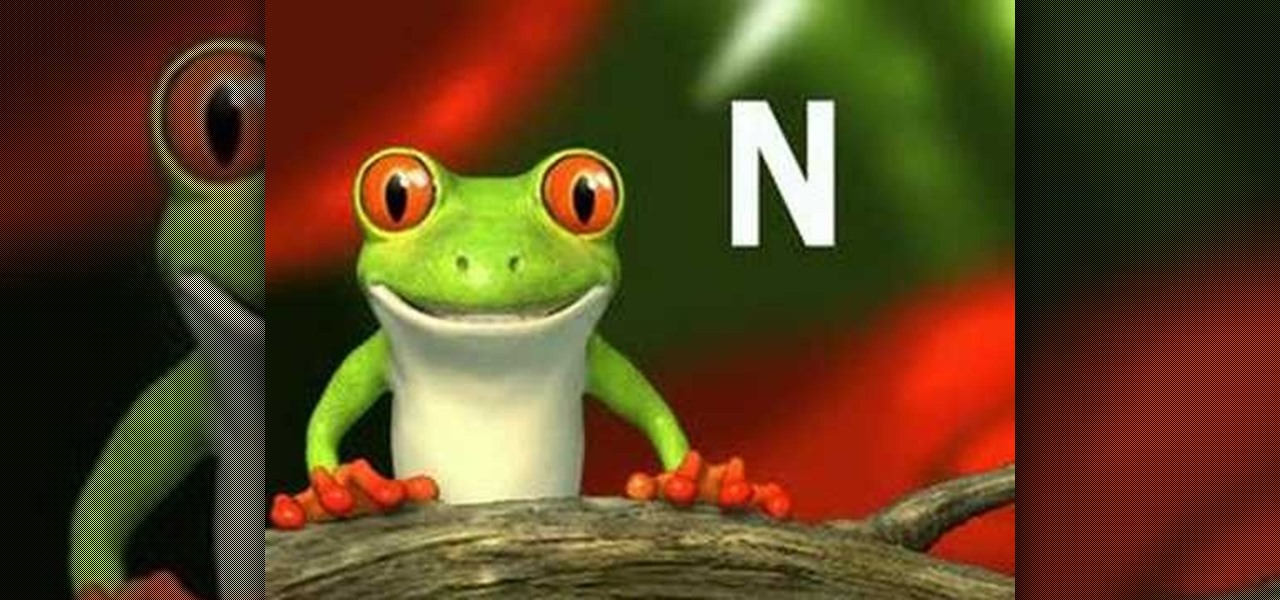
How To: Learn the capital French alphabet
Learn l'alphabet majuscule en français.
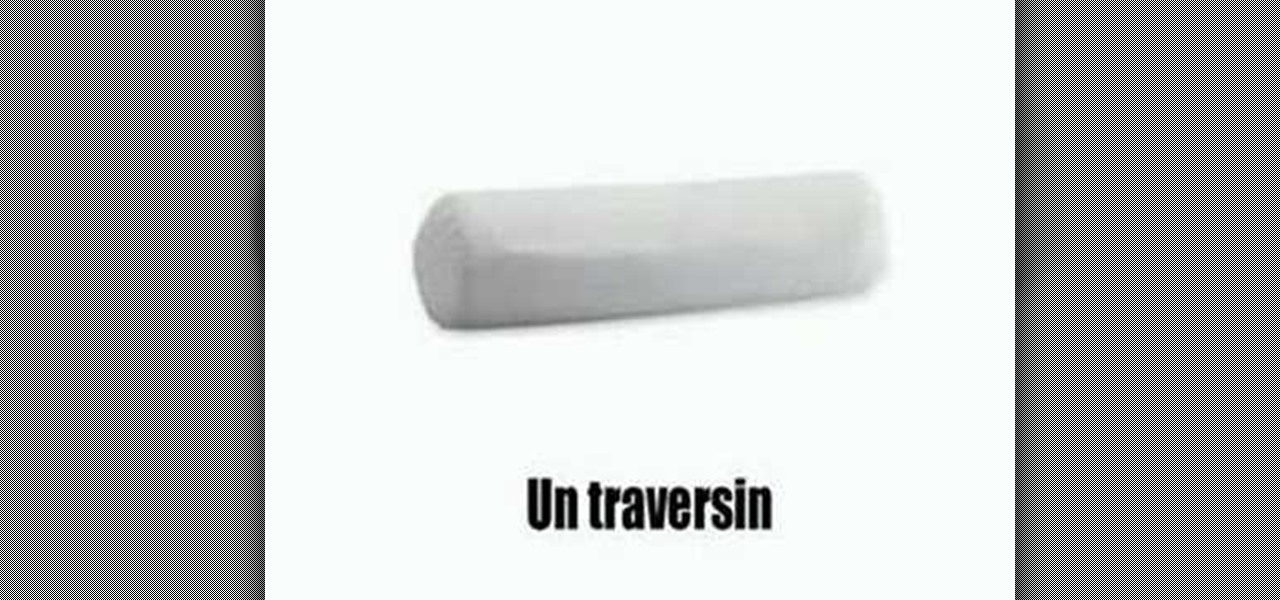
How To: Use French vocabulary relating to la literie (bedding)
Learn some French words relating to bedding and the bedroom, such as "mattress" and "sheet."
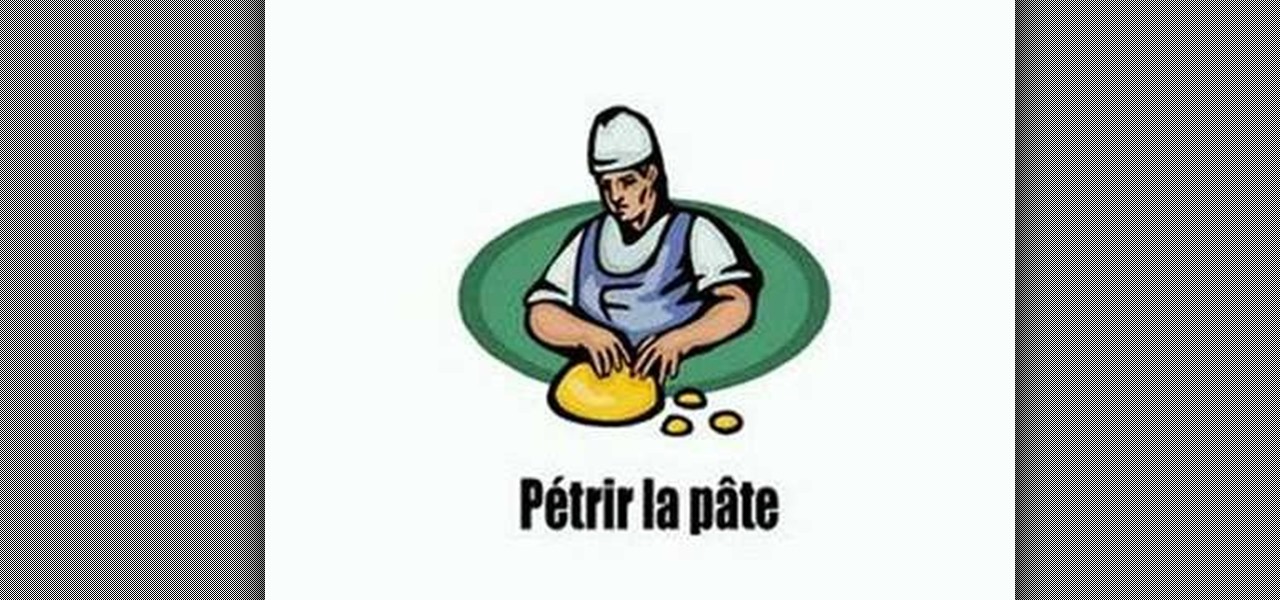
How To: Use French verbs related to the kitchen and cooking
Learn some French verbs related to cooking and the kitchen, like "to serve a dish" and "to make croissants."

How To: Pronounce "ien" in French
Learn how to pronounce French words with "ien" in them.
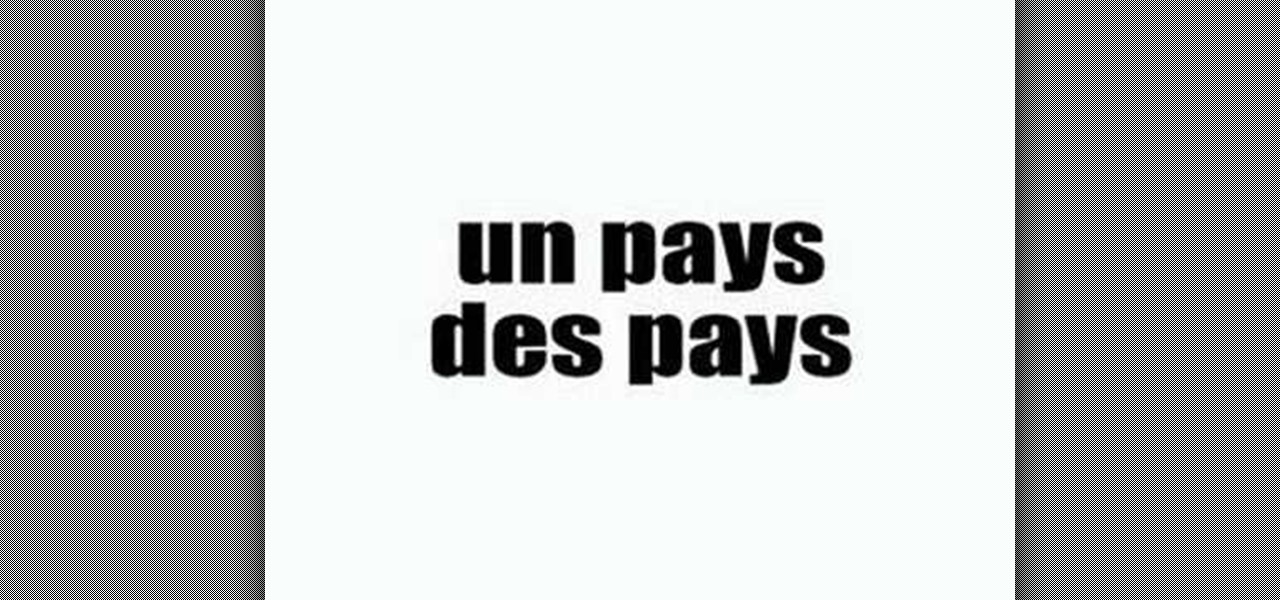
How To: Make singular French nouns plural
Learn how to make singular French nouns into the plural by adding certain endings based on the root word, including "s," "eux," and "oux."
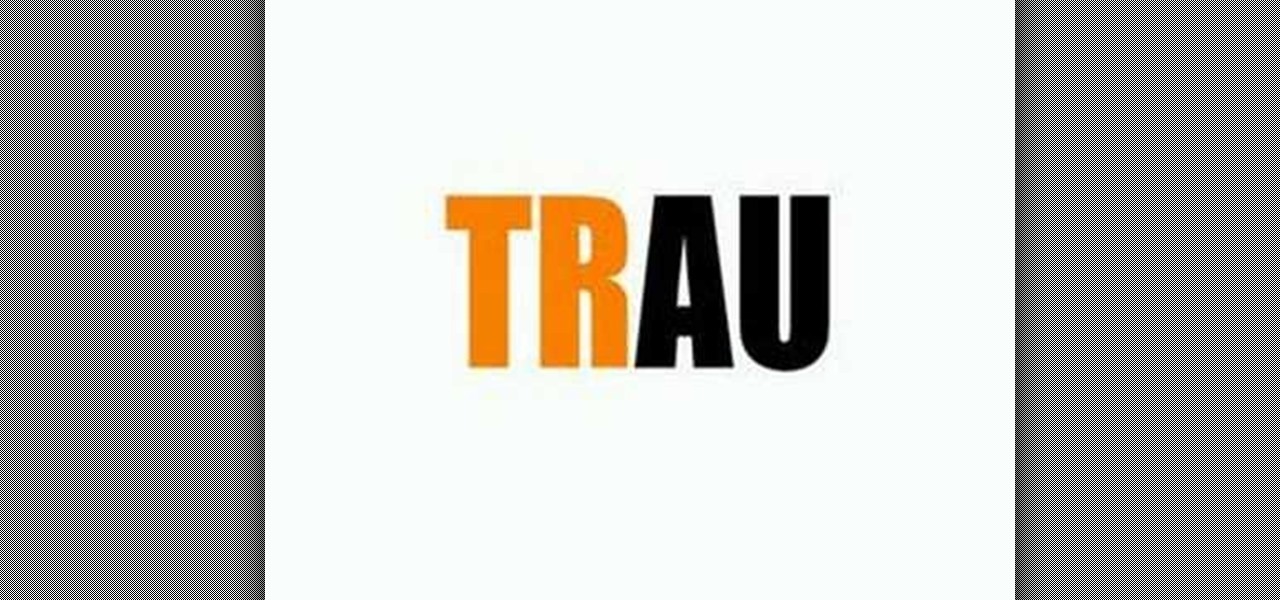
How To: Pronounce syllables with "TR" in French
Watch to learn how to pronounce different combinations of vowels and "tr" in French.

How To: Pronounce syllables with "GR" in French
Watch to learn how to pronounce different combinations of vowels and "gr" in French.

How To: Pronounce syllables with start with "g" in French
Watch to learn how to pronounce different combinations of vowels and the letter "g" in French.

How To: Pronounce syllables with "DR" in French
Watch to learn how to pronounce different combinations of vowels and "dr" in French.

How To: Pronounce syllables with "CR" in French
Watch to learn how to pronounce different combinations of vowels and "cr" in French.

How To: Pronounce syllables with "CH" in French
Watch to learn how to pronounce different combinations of vowels and "ch" in French.

How To: Make French nouns and adjectives feminine
Learn how to make masculine French nouns and adjectives feminine by adding certain endings. Part 1 of 8 - How to Make French nouns and adjectives feminine.




